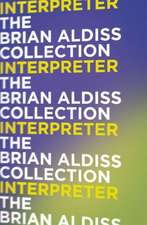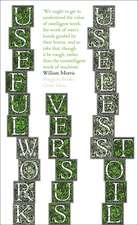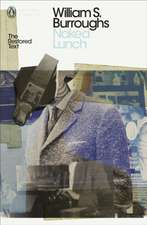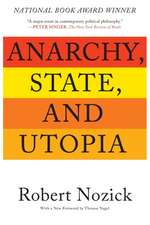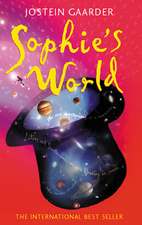On Liberty
Autor John Stuart Mill Editat de Editorial, Taoen Limba Engleză Paperback
On Liberty was a greatly influential and well received work though it did not go without criticism. Some attacked it for its apparent discontinuity with Utilitarianism, while others criticised its vagueness. The ideas presented in On Liberty have remained the basis of much liberal political thought. It has remained in print continuously since its initial publication. To this day, a copy of On Liberty is passed to the president of the British Liberal Democrats as a symbol of office. A copy of the same book is also presented to and then held by the resident of the Liberal Party as a symbol of office.
Mill's marriage to his wife Harriet Taylor Mill greatly influenced the concepts in On Liberty, which was largely finished prior to her death, and published shortly after she died.
Composition
According to Mill's Autobiography, On Liberty was first conceived as a short essay in 1854. As the ideas developed, the essay was expanded, rewritten and "sedulously" corrected by Mill and his wife, Harriet Taylor. Mill, after suffering a mental breakdown and eventually meeting and subsequently marrying Harriet, changed many of his beliefs on moral life and women's rights. Mill states that On Liberty "was more directly and literally our joint production than anything else which bears my name." The final draft was nearly complete when his wife died suddenly in 1858. Mill suggests that he made no alterations to the text at this point and that one of his first acts after her death was to publish it and to "consecrate it to her memory." The composition of this piece was also indebted to the work of the German thinker Wilhelm von Humboldt, especially his essay On the Limits of State Action. Finally published in 1859, On Liberty was one of Mill's two most influential books (the other being Utilitarianism).
Preț: 50.80 lei
Nou
9.72€ • 10.59$ • 8.19£
Carte tipărită la comandă
Livrare economică 24 aprilie-08 mai
Specificații
ISBN-10: 1539908887
Pagini: 122
Dimensiuni: 152 x 229 x 7 mm
Greutate: 0.17 kg
Descriere
This new edition of On Liberty is the first to combine John Stuart Mill's influential work with a set of relevant primary sources by Mill and his contemporaries. Alan Kahan's introduction provides students with crucial background on nineteenth-century British politics and society; intriguing biographical details about Mill's early life, intellectual career, and marriage; and thought-provoking discussion of the core issues of autonomy and freedom that On Liberty addresses. The related primary documents - including an excerpt from Mill's famous proto-feminist treatise On the Subjection of Women - offer useful insights into the philosopher's intellectual outlook as well as a fascinating view into On Liberty's rather stormy reception. Excerpts from Mill's diary and autobiography, contemporary reviews of On Liberty, and appreciations of Mill by his colleagues all deepen students' understanding of this remarkable work and its equally remarkable author. Headnotes and gloss notes to the documents, a selected bibliography, a chronology of Mill's life, and a set of questions for consideration offer additional pedagogical support.
Textul de pe ultima copertă
Discussed and debated from time immemorial, the concept of personal liberty went without codification until the 1859 publication of "On Liberty." John Stuart Mill's complete and resolute dedication to the cause of freedom inspired this treatise, an enduring work through which the concept remains well known and studied.
The British economist, philosopher, and ethical theorist's argument does not focus on "the so-called Liberty of the Will but Civil, or Social Liberty: the nature and limits of the power which can be legitimately exercised by society over the individual." Mill asks and answers provocative questions relating to the boundaries of social authority and individual sovereignty. In powerful and persuasive prose, he declares that there is "one very simple principle" regarding the use of coercion in society one may only coerce others either to defend oneself or to defend others from harm.
The new edition offers students of political science and philosophy, in an inexpensive volume, one of the most influential studies on the nature of individual liberty and its role in a democratic society."
Notă biografică
Cuprins
PART ONE: INTRODUCTION: JOHN STUART MILL AND HIS WORK
Who Was John Stuart Mill?
Mill's Childhood and Early Career
New Influences on Mill and On Liberty
Mill in Context
On Liberty
PART TWO: THE DOCUMENT: ON LIBERTY
PART THREE: RELATED DOCUMENTS
1. John Stuart Mill, Diary, January–April, 1854
2. John Stuart Mill, Autobiography, 1873
3. John Stuart Mill, On the Subjection of Women, 1869
4. London Quarterly Review, Notice of On Liberty, October 1859
5. Leslie Stephen, Social Macadamization, Fraser's Magazine, August 1872
6. Southern Review, Review of On Liberty, July 1867
Appendixes
A Chronology of Important Events in the Life of John Stuart Mill (1806–1873)
Questions for Consideration
Selected Bibliography
Recenzii
Caracteristici
2 The related primary documents — including an excerpt from Mill's famous proto-feminist treatise On the Subjection of Women — offer useful insights into the philosopher's intellectual outlook as well as a fascinating view into On Liberty's rather stormy reception
3 Excerpts from Mill's diary and autobiography, contemporary reviews of On Liberty, and appreciations of Mill by his colleagues all deepen students' understanding of this remarkable work and its equally remarkable author


